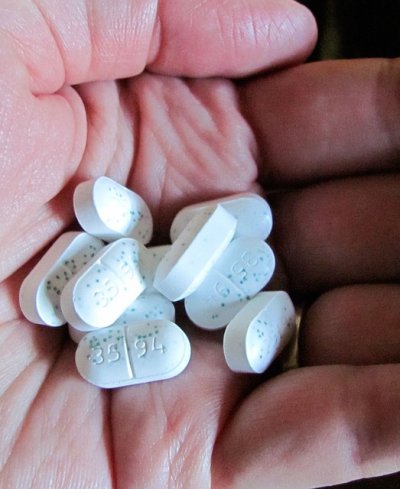Uncovering the truth about dual diagnosis

Substance abuse and mental illness may be separate issues, but go together just as well as peanut butter and jelly.
Individuals suffering from mental health issues such as depression, bipolar disorder, social anxiety, obsessive-compulsive disorder, etc.—often deal with substance abuse or drug addiction as a way to alleviate their emotional suffering. A combination of the two illnesses is labeled as dual diagnosis and is one of the most complex psychiatric conditions to treat in therapy.
Understanding the link between substance abuse and mental health is relative to an individual's symptoms and chemical makeup, making treatment a frustrating and often hopeless process. Fortunately, there are substance abuse and drug addiction treatment programs such as Balboa Horizons, that specialize in treating dual diagnosis with successful results by personalizing the treatment plan, providing an encouraging sign as treatment continues to improve.
Which comes first: mental health problems or drug addiction?
According to the American Journal of Psychiatry, mental health conditions appear to form before addiction. Many mental health issues are intrusive symptoms that affect all areas of life. Symptoms of hopelessness, guilt, lack of motivation, fear of public humiliation, the future, death and an infinite of other psychological distresses, all help to attract mentally ill individuals to seek an illicit cure: drugs.
Certain drugs, either manufactured through the black market or via pharmaceutical trade, produce a variation of mind-altering components that alter the brain’s natural chemistry. Opioids such as heroin and morphine produce extreme, often overwhelming feelings of wellbeing and euphoria—attracting individuals of mental suffering to temporarily cure their illness. Unfortunately, the more the individual self-medicates, the more likely drug dependence ensues—assuring to only worsen the emotional distress the individual so hopefully wished to evade.
- Approximately half of individuals who endure severe mental illnesses suffer from substance addiction.
- 37 percent of alcohol abusers as well as 53 percent of drug abusers were concluded of having at least one mental condition of illness.
- 29 percent of mentally ill individuals abuse alcohol or drugs.
Source: National Alliance on Mental Illness
However, confuting evidence supports that drug addiction and alcohol abuse can increase the progression of mental illnesses or develop underlying cognitive conditions to form; overall evidence supports that at least these three factors mandate a dual diagnosis:
- Self-medication of drugs and alcohol is used to alleviate the symptoms of mental health issues.
- Drug abuse increases the risk of developing mental disorders
- Drug addiction and substance worsen or trigger preexisting mental health conditions.
The realization process of dual-diagnosis
Whether it be ego, fear of embarrassment, family rejection, or one;'s confidence in self-recovery—substance abuse on top of mental illness don’t get better if ignored. In fact, if history is any indicator of what’s to come, you can expect conditions to only worsen and grow more dangerous if left untreated.
Although sufferers from dual-diagnosis may reveal it as an enviable lifelong situation, it doesn’t have to be. Treatment exists for a reason, and if it didn’t, it wouldn’t exist in the first place.
As the cliché goes: Admitting to yourself you have a problem is the first step towards recovery—is, like it or not, undoubtedly true.
Look at dual diagnosis from a different perspective and see if you’re at risk
- Family history – Research through your family’s history and investigate if other members endure similar conditions of mental illness and drug addiction, which may help to better explain your prone to enduring such conditions.
- Consider how substances alter your mood – For example, drinking alcohol may encourage you to feel angry or sad. Ask yourself how and to what degree substances alter your emotional state may be determine if you’re subject to dual diagnosis
- Consider how sobriety alters your mood – Surely, craving and feelings of sadness ensue after using a certain drug over an extended period of time. However, if you’ve achieved sobriety for a prolonged period, you may be suffering from a mental illness more than a substance issue.
- Consider previous treatments – If you’ve experienced various forms of treatment with mixed or no benefits; consider what type of treatment was designed during that time. In do so, you may have a better understanding of which treatment options to pursue and which to avoid.
Image: https://pixabay.com/en/pills-drugs-hand-medication-14550/
More to Read:
Previous Posts:


